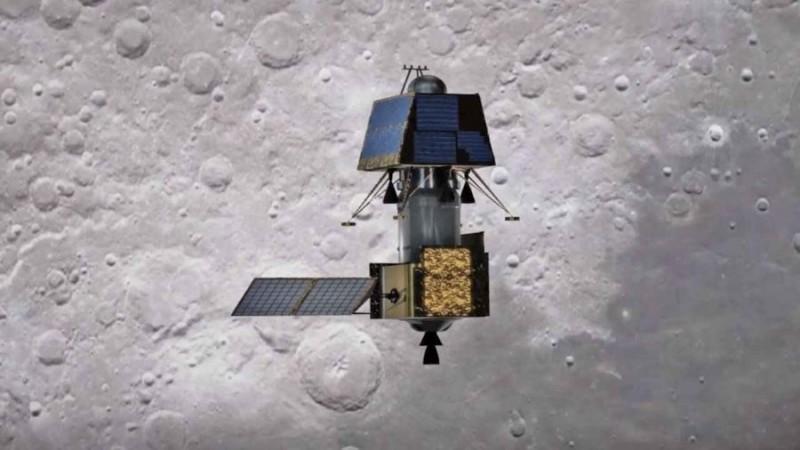
"Man needs his difficulties because they are necessary to enjoy success," were the celebrated words spoken by a true visionary, India's former President, scientist and the Indian Space Research Organization's (ISRO) project director, Dr APJ Abdul Kalam. India's space agency ISRO has been garnering enormous accolades in the news spectrum recently.
Space exploration has come a long way since Neil Armstrong walked on the Moon's surface in 1969 as the world waited with bated breath. In July, when India's Chandrayaan-2 blasted off from a tiny island off the Bay of Bengal, it did not just carry a moon rover, it carried a tiny but mighty nation's mounting determination to conquer space and the moon. Despite its first attempt to soft-land onto the moon's uncharted crucial south pole that scientists believe has the possibility of the presence of water and craters that contain fossil records of the early solar system, nosedived, this space program promotes India's intensifying stature worldwide and fortifies its defence capabilities.
But today as we celebrate Chandrayaan and India's most ambitious space mission, there are certain pertinent questions that come to my mind. Why are we invading space at such a rapid pace? Is it a mere show of a nation's tech prowess or is it something much larger that we aren't able to realize? What is the motive behind this frantic race to the moon? Why is the quest to find another planet like Earth more important today than ever before? Why are we willing to gamble everything to voyage into the indefinite?
Had India's spaceship been successful in landing on the moon's surface, it would not have been the only one. China's Chang'e-4 has been functioning faultlessly since it's land in January. Chang'e-4 was followed by Beresheet, a probe by the Israeli non-profit organizationSpaceIL. Though it crash-landed in April, SpaceIL has announced its intentions of having another shot at the Moon soon. Concurrently, the US has pledged to set up lunar laboratories in the near future, while Europe and Russia have also revealed plans to launch multifaceted missions.
Suddenly, everyone wants a piece of the Sea of Tranquility, the moon!
The question is, why?
Perhaps the answer is quite simple. There was a time when man wanted to race to the South Pole and get the better of it. When man built labs and bases in Antarctica, we were left with no place else to explore other than the space and the moon and eventually Mars!
What does a space mission really mean to a country and mankind? Why is there an imminent need for another planet similar to Earth?
Needless to say, there will come a time when man will have to shift out of Earth and I am not taking merely about a space mission, I am taking about establishing a home on another planet. Do you know that not just Earth's moon and Venus but also Saturn's moon Titan have been identified as potential hosts for humans in the near future?
Space ventures have faced severe condemnation from various quarters for being redundant investments to flouting public policies. But I ask you one simple question. If NASA or ISRO, the Chinese National Space Agency or the European Space Agency were to disappear from the face of Earth, how will you know what's beyond the blue skies? Who will put a human into space to understand what lies beyond the solar system? Who will put a Hubble Space Telescope into space to study the stars that sparkle over our heads?
It is this mammoth thirst to understand the indefinite and beyond is what has led man to cultivate and develop major technological breakthroughs and advancements. Have you ever pondered if we had not developed the tech that would help man explore space, would we have had the GPS, precise weather predictions, solar cells or even the rudimentary ultraviolet filters in sunglasses and cameras? Then there's also medical research that's happening simultaneously in space right now that could cure diseases and prolong human lives, experiments that could not have been performed on Earth? The answer to the question you ask is right in front of you.
Exploring space and beyond could save mankind.
Man has always been inquisitive, in awe of the unknown. We build monuments and leave impressions where we tread. Is not it thus that we want to leave behind our legacy to demonstrate our future generations what we have accomplished in our lives? Wasn't this the same impulse that drove man to build pyramids, cathedrals, art galleries and museums?
As constant human exploitation of our ecosystem and draining of our natural resources intensifies, it is bequeathing a host of complications for mankind. Space has a wealth of precious materials and resources, resources that are rare on Earth and being tapped may be the only way for man to survive.
Ultimately, it's a matter of existence for mankind.
Like Swami Vivekananda has said," Take up one idea. Make that one idea your life - think of it, dream of it, live on that idea. Let the brain, muscles, nerves, every part of your body, be full of that idea, and just leave every other idea alone. This is the way to success."
This is precisely what man is doing. Humans, in the billions, have endeavoured to learn about the world around us, efforts that have allowed man to build civilizations and leave behind bequests for their progenies. When man explores space, he not only unearths new worlds and shapes cutting-edge technologies but also works towards a larger goal notwithstanding nationality, race or gender.
If man stops exploring, we cease being human.









